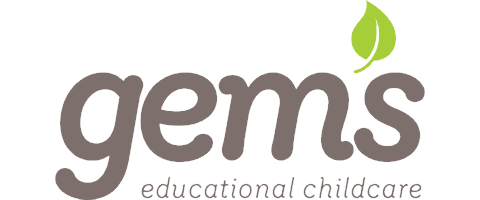Gems Newsletter May 2025
Kia ora whānau,
We’re excited to introduce a new way of staying connected with you—our monthly Gems Newsletter! Each month, we’ll be sharing highlights, stories, and important updates that reflect the vibrant life and learning happening here at the centre.
Our goal is simple: to keep you informed, involved, and inspired by all that we do together. From special events and learning moments to team updates and centre news, this newsletter will offer a glimpse into the everyday magic that happens in our learning community.
At the heart of our practice are our five core values:
Relationships
Nurture,
Natural
Respect
Support.
These values will shine through each edition and in our daily practice at Gems.
This Months Feature: Our Philosophy at Gems
From day one, we have aspired to provide quality care and education for tamariki in a setting that feels like a home away from home. We believe that children thrive as expressive thinkers and confident learners in an environment where they are free to explore, socialise, communicate, and investigate—all through the power of play.
Our approach is deeply inspired by the philosophies of Dr. Emmi Pikler and the Reggio Emilia approach. These frameworks honour the competence and individuality of each child, encourage respectful relationships, and celebrate the natural curiosity children bring into the world.
To read more about our philosophy, follow the link HERE.
Pikler Philosophy Primary Caregiving, Settling and Free Movement
Pikler Philosophy Primary Caregiving, Settling and Free Movement
The influence of Dr. Emmi Pikler’s philosophy can be seen across all our learning environments at Gems. One of the most important ways this comes to life is through our settling and primary caregiving processes. These practices allow our kaiako to build strong, foundational relationships with both tamariki and whānau.
Through these meaningful connections, children develop a deep sense of trust and confidence, knowing there is always a secure, responsive adult nearby. This emotional security enables them to explore, play, and engage in their learning freely—knowing their special person will always be there if needed.
We believe that learning is not rushed. Every phase of a child’s development is honoured, supported, and unfolds naturally, in its own time. This can be beautifully observed in our Nest spaces, where infants are given the time and space to explore free movement at their own pace. Here, the environment is calm, considered, and designed to encourage independent discovery while supporting each child’s individual rhythm and readiness. These practices reflect our belief in respectful care, where each interaction is intentional, responsive, and rooted in trust.
“A child who is allowed to move freely develops a strong sense of self, a sense of confidence in their own abilities.”
As children grow and transition into our Hive spaces, the principles of free movement and self-directed exploration continue to flourish. Here, tamariki are empowered to engage in healthy risk-taking as they navigate monkey bars, balance ropes, and equipment of varying heights. Rather than being told how far to go, children are encouraged to tune into their own comfort levels, test their limits, and make decisions about how far they want to challenge themselves. This self-awareness helps children learn about their own bodies, their capabilities, and their limits, fostering a deep sense of confidence and autonomy.
We also see this beautifully in our nature play excursions, where children climb trees, balance on logs, and explore uneven terrain that may be unfamiliar. These outdoor adventures not only support gross motor development and resilience but also encourage children to engage all their senses and adapt to different environments, building real-world problem-solving skills.
Our environments and kaiako across all rooms uphold the same philosophy: trust in the child, honour their rhythm, and support their journey with respectful, mindful care.
Incorporating Pikler at Home: Tips for Whānau
At Gems, we believe in partnering with whānau to create a consistent, respectful environment for tamariki both at the centre and at home. If you’re interested in bringing elements of the Pikler philosophy into your own routines, here are a few simple ways to start:
1. Pause Before Stepping In
Let your child work through a challenge before helping. Offer calm reassurance instead of jumping in.
2. Let Them Move Freely
Avoid placing children in positions they can’t get into or out of on their own. Trust their natural progression.
3. Offer Gentle Guidance, Not Solutions
Rather than lifting or fixing, use gentle guidance like: “Where could you try next?”
4. Support Confidence Through Repetition
Let them repeat actions again and again. Repetition builds mastery and confidence.
As we wrap up our very first edition of the Gems newsletter, we want to thank you for taking the time to connect with us in this new way. It's a privilege to walk alongside you in your child’s early years, and we’re so proud to share a glimpse into the values, philosophies, and everyday moments that make our centre such a special place. We hope this newsletter has left you feeling informed, involved, and inspired—and reminded of the deep care and intentionality behind everything we do here at Gems.
Our centres are built on strong relationships, grounded in respect, and guided by a deep commitment to nurturing each child’s natural development. Through our shared journey, we aim to provide unwavering support to both tamariki and whānau.
We look forward to sharing more stories, reflections, and celebrations with you in the months ahead. As always, our doors are open—so please reach out if you have any feedback, ideas, or moments from home you’d love to share with us.
Ngā mihi nui,
The Gems Team
Term 2 Housekeeping
Things to be mindful of for term 2: Wearing warmer layers for the colder mornings Packing spare, labelled clothes Labelling belongings to ensure they come home














